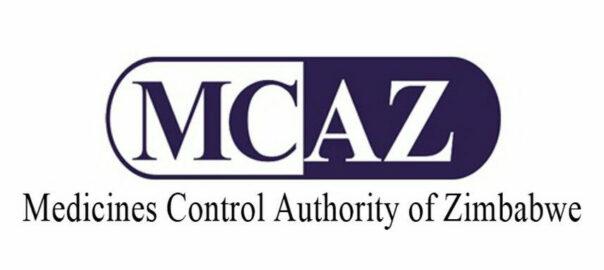News / National
Medicines regulator warns against illegal use of 'skinny jab' for weight loss
07 Jun 2025 at 09:39hrs |
0 Views

The Medicines Control Authority of Zimbabwe (MCAZ) and the Health Professions Authority (HPA) have issued a stern warning to the public over the rising illegal sale, purchase, and misuse of Ozempic, a prescription medication originally designed to treat type 2 diabetes.
Dubbed the "skinny jab" due to its growing popularity as a weight-loss aid, Ozempic has been increasingly accessed and used outside authorised medical channels, raising serious health concerns.
In a joint statement, MCAZ Director-General Richard Rukwata highlighted a worrying surge in the illicit trade of the drug through unauthorised sellers, including online platforms and unlicensed vendors.
"Recent reports indicate an increase in the illicit use of Ozempic for weight loss purposes. However, its use for weight loss outside of medical supervision is potentially dangerous and could lead to serious harm to the user," said Rukwata.
He emphasized that Ozempic is a prescription-only medicine and should only be used under the guidance of a qualified and registered healthcare professional.
"Self-medicating with Ozempic for weight loss can have serious and potentially life-threatening consequences," Rukwata added.
The authorities cautioned the public against purchasing Ozempic from unauthorised sources, including online marketplaces, social media platforms, unlicensed premises, or individuals without proper registration.
"These sources often lack quality control and may offer substandard and/or falsified medications. The illegal sale and distribution of prescription medications is not only illegal but also poses a significant threat to public health," the statement warned.
The MCAZ and HPA reminded illegal traders that selling prescription medicines without proper licences is a criminal offence under Zimbabwean law, punishable by imprisonment.
"Selling medicines by unlicensed persons from unlicensed premises contravenes Sections 50 and 52 of the Medicines and Allied Substances Control (General) Regulations, 1991, SI 150 of 1991, as read with Section 106 of the same Regulations.
"Additionally, the sale of unregistered medicines is in contravention of Section 29(1)(a) of the Medicines and Allied Substances Control Act, as read with Section 29(la) of the same Act.
"The Health Professions Act (Chapter 27:19) Section 126 prohibits unqualified personnel from performing any act specifically pertaining to a registered profession. Therefore, diagnosis and prescribing should only be conducted by qualified and licensed personnel," the statement said.
Both MCAZ and HPA urged the public to seek medical advice and treatment only from registered health professionals and institutions.
"Mandated to safeguard the public, HPA and MCAZ urge the public to seek medical advice and treatment only from registered health professionals and institutions. These can be identified by the possession of a valid practising certificate from the practitioner's respective Council, an HPA licence for premise registration, and an MCAZ licence for both person and premises.
"It is an offense for an unlicensed individual to diagnose, treat, and sell medicines to the public," the statement concluded.
The warnings come amid growing concerns worldwide about the misuse of Ozempic and similar drugs marketed for off-label weight loss, underscoring the need for caution and professional medical supervision.
Dubbed the "skinny jab" due to its growing popularity as a weight-loss aid, Ozempic has been increasingly accessed and used outside authorised medical channels, raising serious health concerns.
In a joint statement, MCAZ Director-General Richard Rukwata highlighted a worrying surge in the illicit trade of the drug through unauthorised sellers, including online platforms and unlicensed vendors.
"Recent reports indicate an increase in the illicit use of Ozempic for weight loss purposes. However, its use for weight loss outside of medical supervision is potentially dangerous and could lead to serious harm to the user," said Rukwata.
He emphasized that Ozempic is a prescription-only medicine and should only be used under the guidance of a qualified and registered healthcare professional.
"Self-medicating with Ozempic for weight loss can have serious and potentially life-threatening consequences," Rukwata added.
The authorities cautioned the public against purchasing Ozempic from unauthorised sources, including online marketplaces, social media platforms, unlicensed premises, or individuals without proper registration.
"These sources often lack quality control and may offer substandard and/or falsified medications. The illegal sale and distribution of prescription medications is not only illegal but also poses a significant threat to public health," the statement warned.
The MCAZ and HPA reminded illegal traders that selling prescription medicines without proper licences is a criminal offence under Zimbabwean law, punishable by imprisonment.
"Selling medicines by unlicensed persons from unlicensed premises contravenes Sections 50 and 52 of the Medicines and Allied Substances Control (General) Regulations, 1991, SI 150 of 1991, as read with Section 106 of the same Regulations.
"Additionally, the sale of unregistered medicines is in contravention of Section 29(1)(a) of the Medicines and Allied Substances Control Act, as read with Section 29(la) of the same Act.
"The Health Professions Act (Chapter 27:19) Section 126 prohibits unqualified personnel from performing any act specifically pertaining to a registered profession. Therefore, diagnosis and prescribing should only be conducted by qualified and licensed personnel," the statement said.
Both MCAZ and HPA urged the public to seek medical advice and treatment only from registered health professionals and institutions.
"Mandated to safeguard the public, HPA and MCAZ urge the public to seek medical advice and treatment only from registered health professionals and institutions. These can be identified by the possession of a valid practising certificate from the practitioner's respective Council, an HPA licence for premise registration, and an MCAZ licence for both person and premises.
"It is an offense for an unlicensed individual to diagnose, treat, and sell medicines to the public," the statement concluded.
The warnings come amid growing concerns worldwide about the misuse of Ozempic and similar drugs marketed for off-label weight loss, underscoring the need for caution and professional medical supervision.
Source - NewZimbabwe
Join the discussion
Loading comments…




























